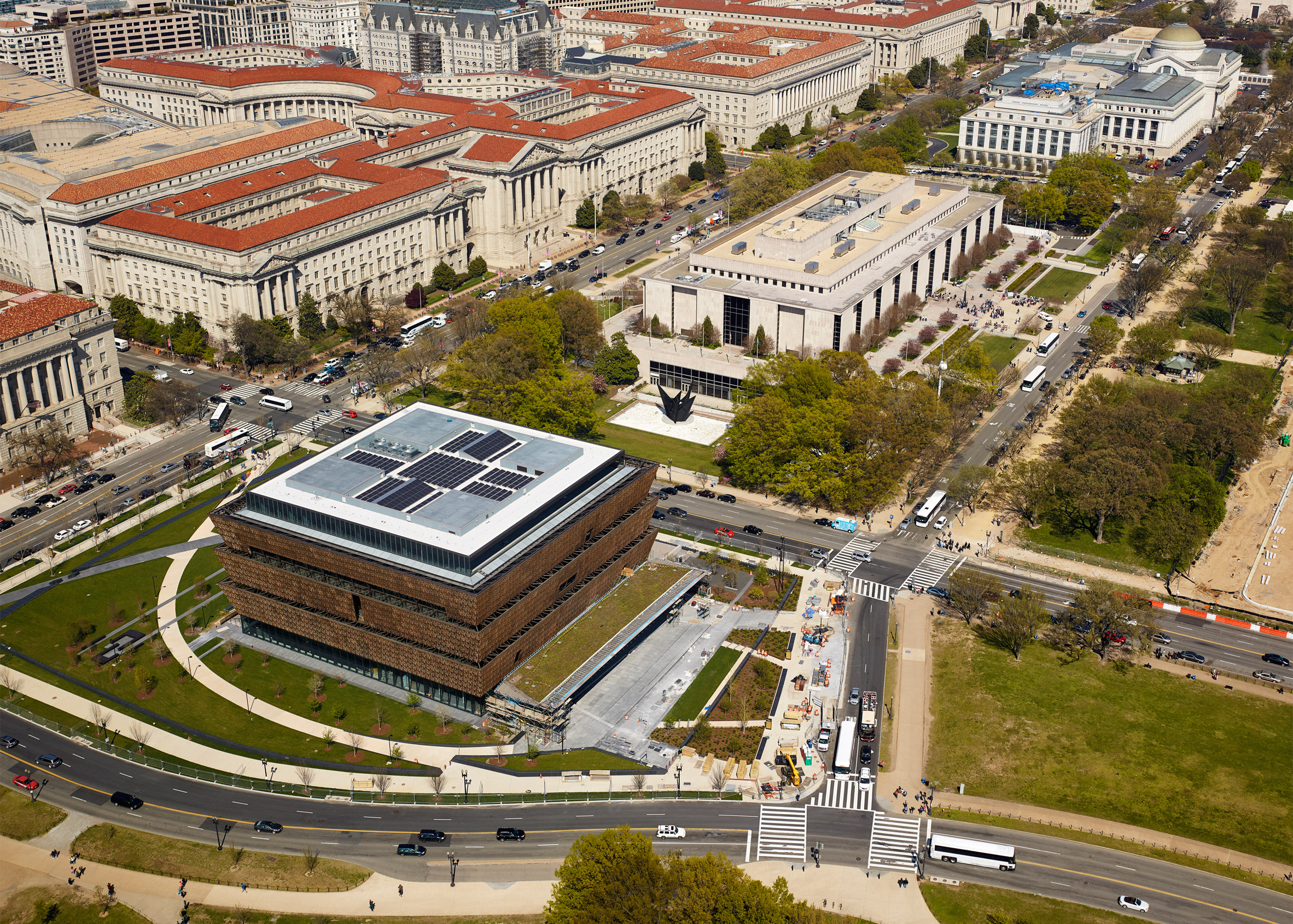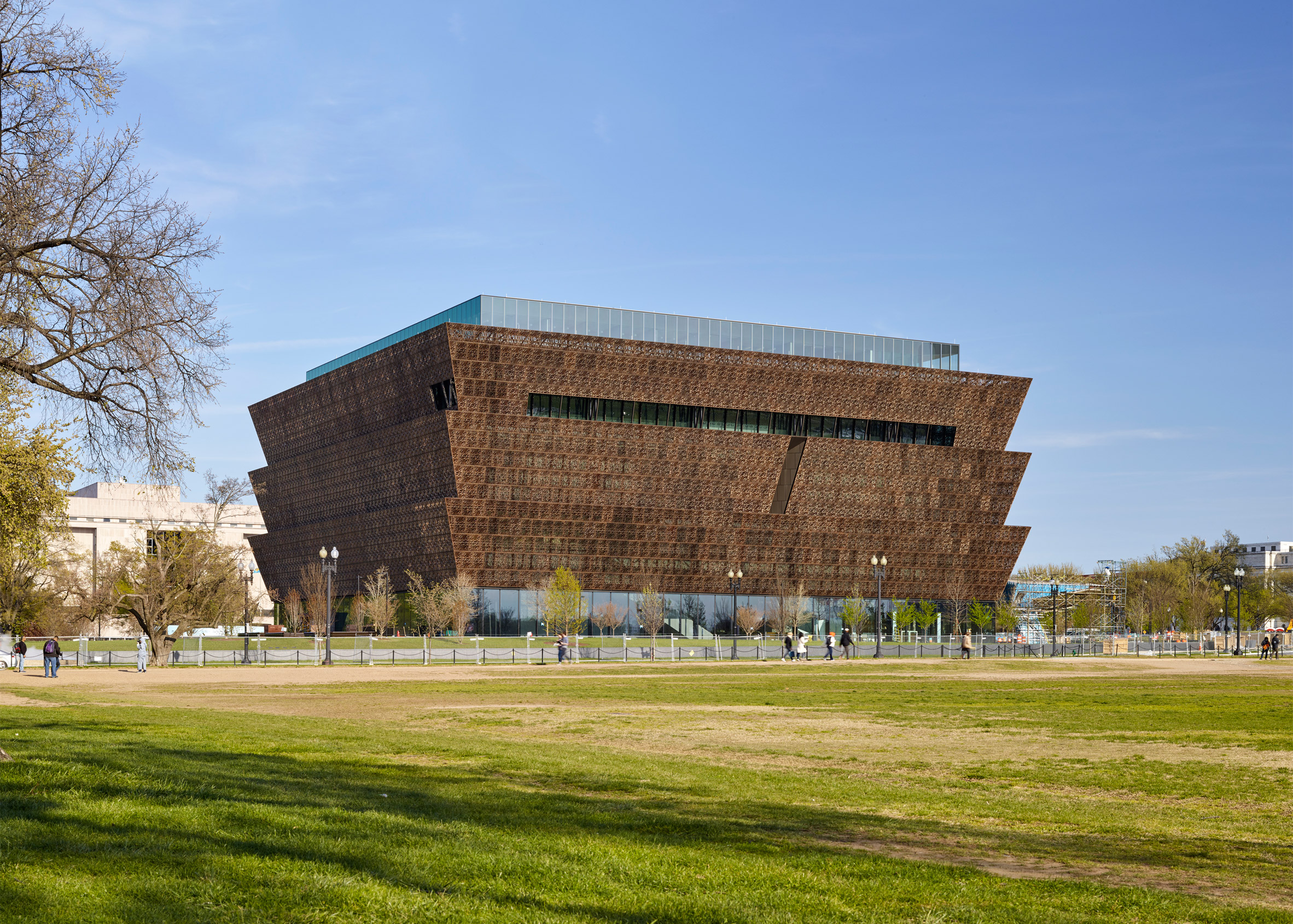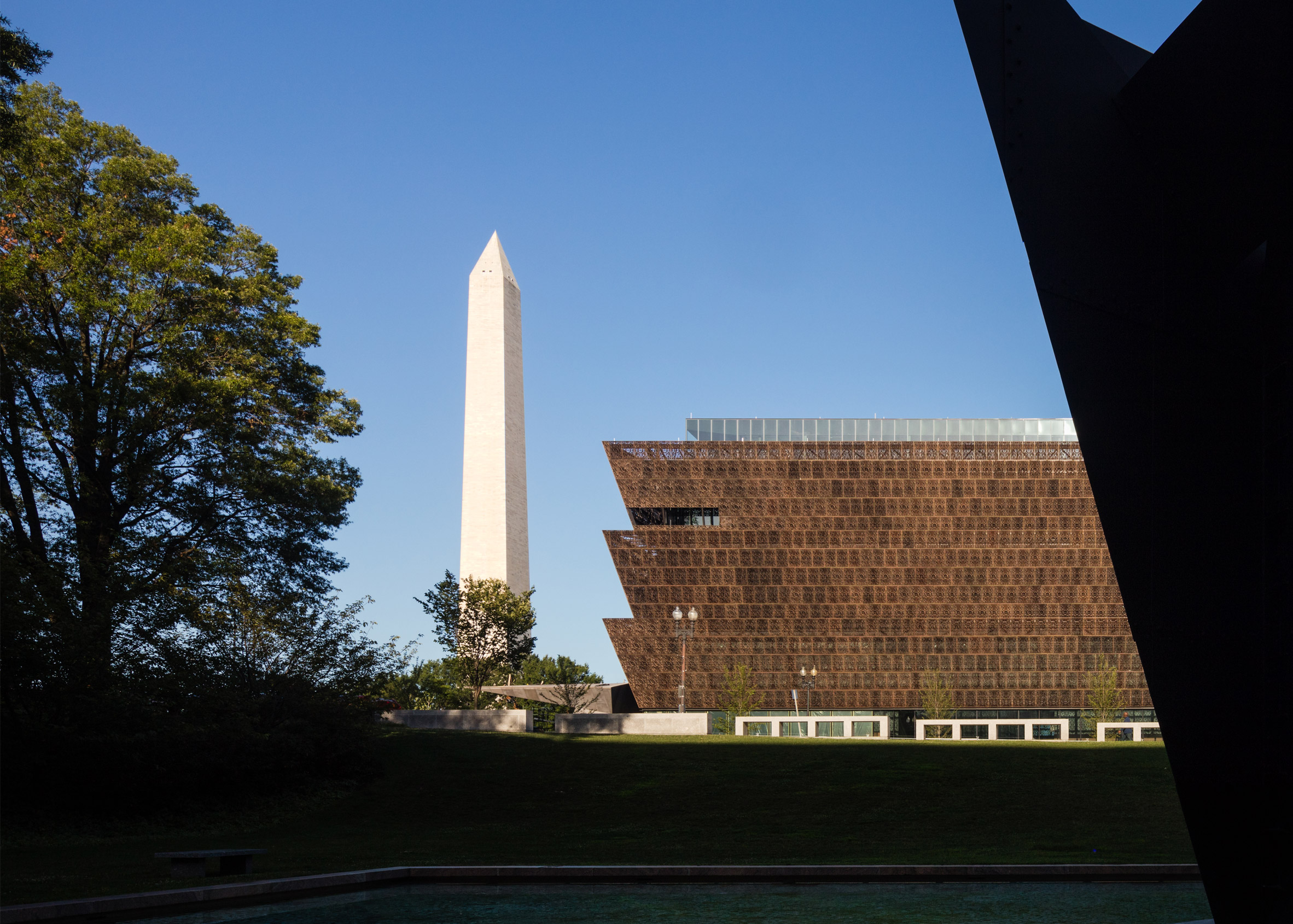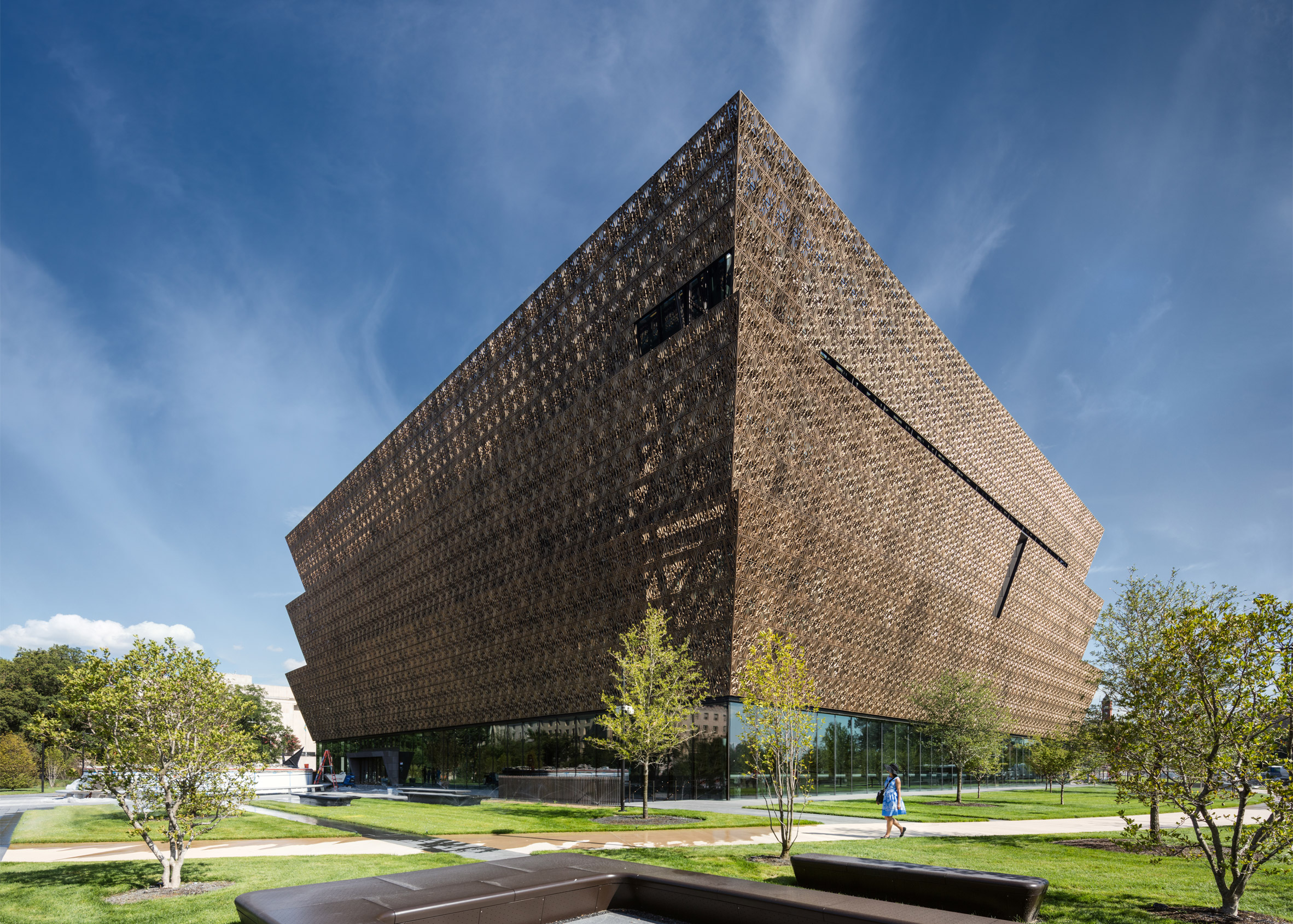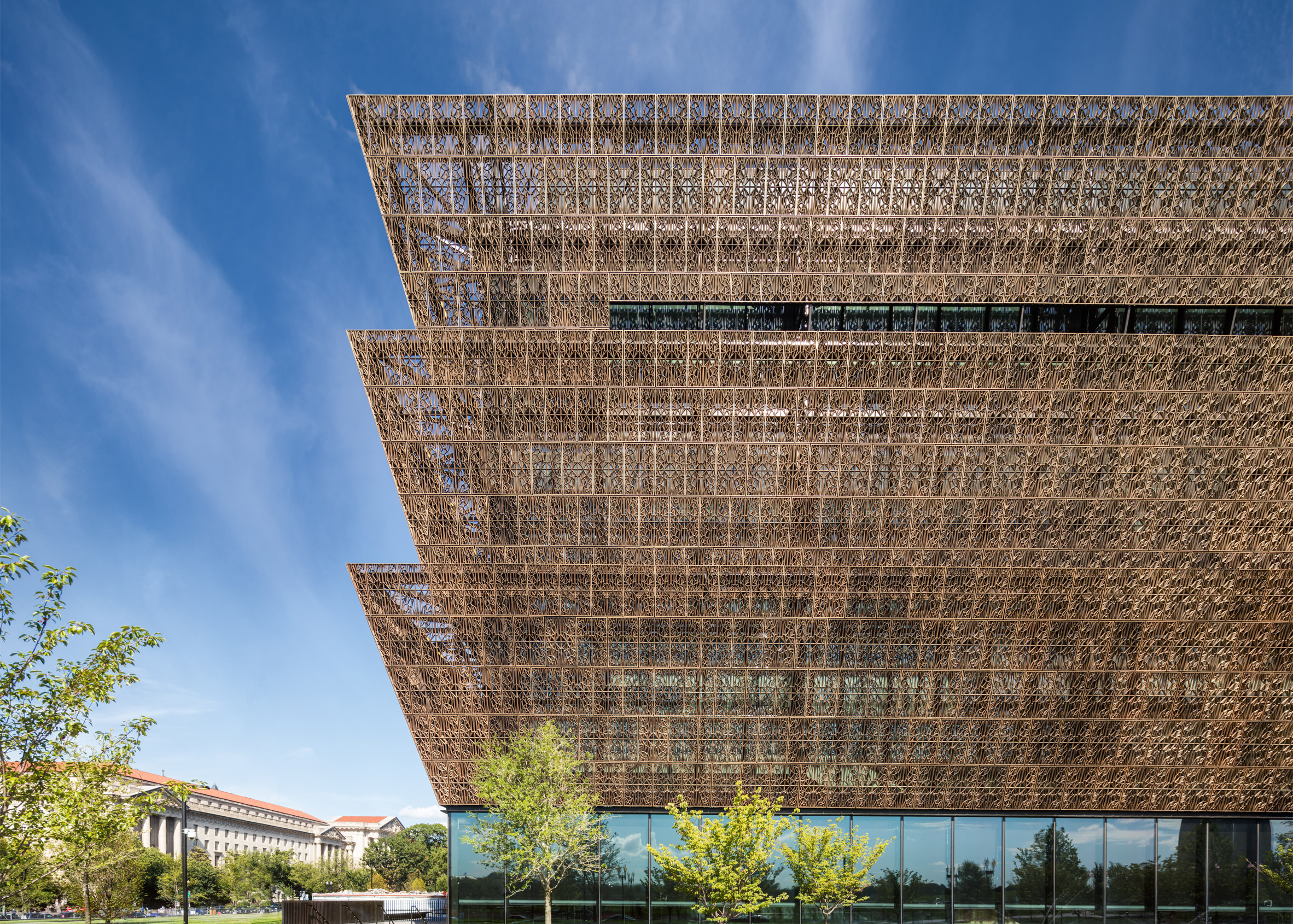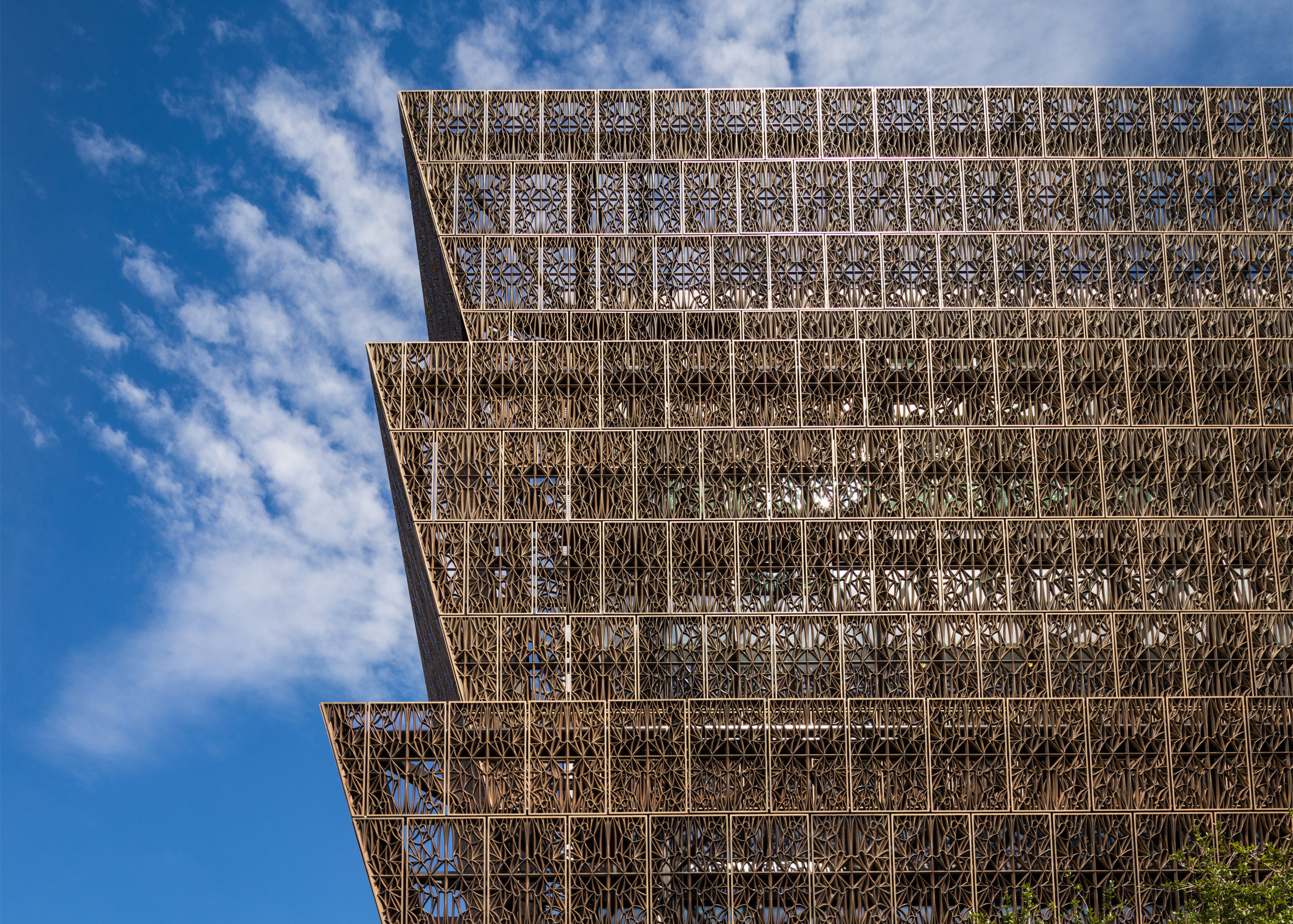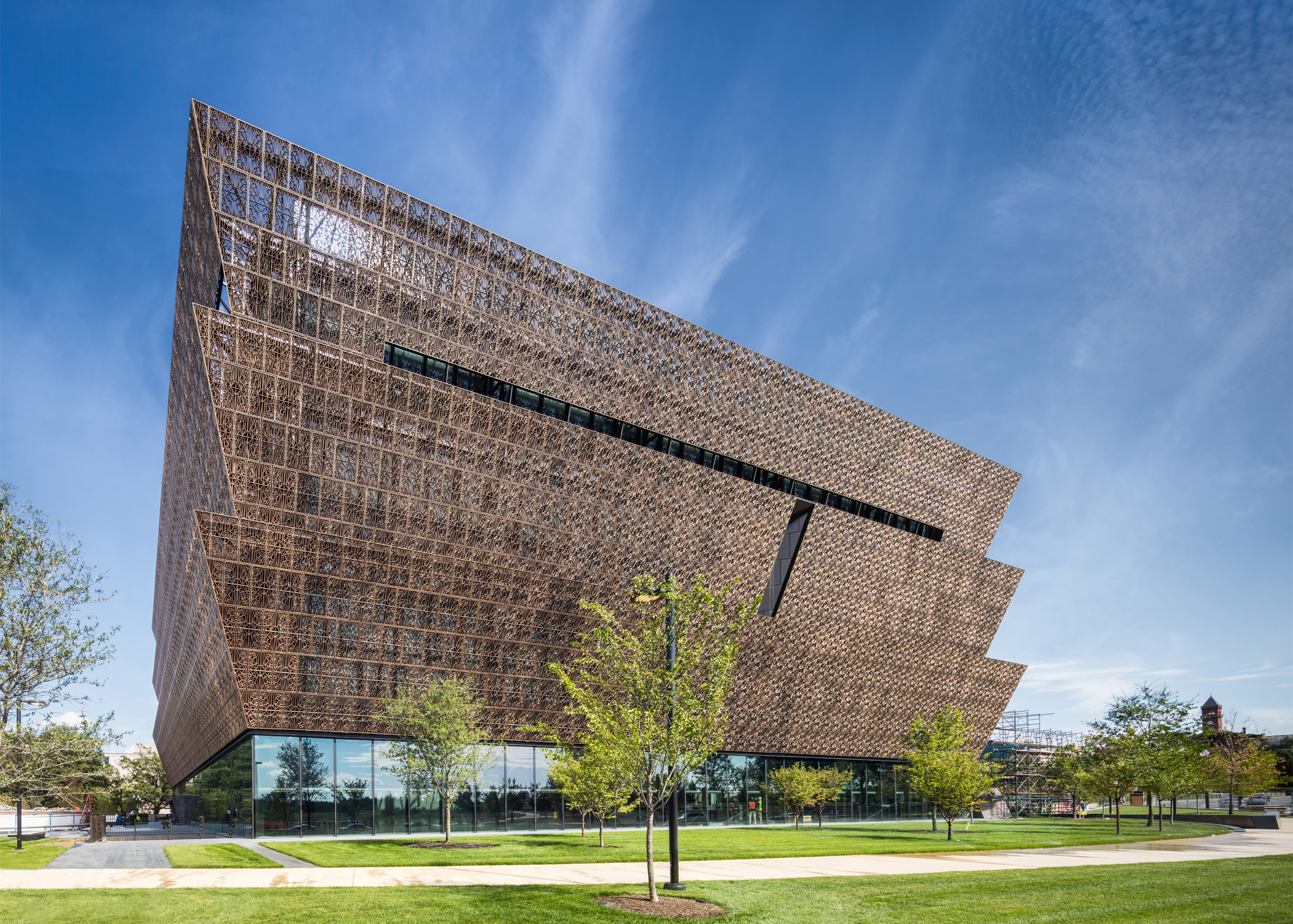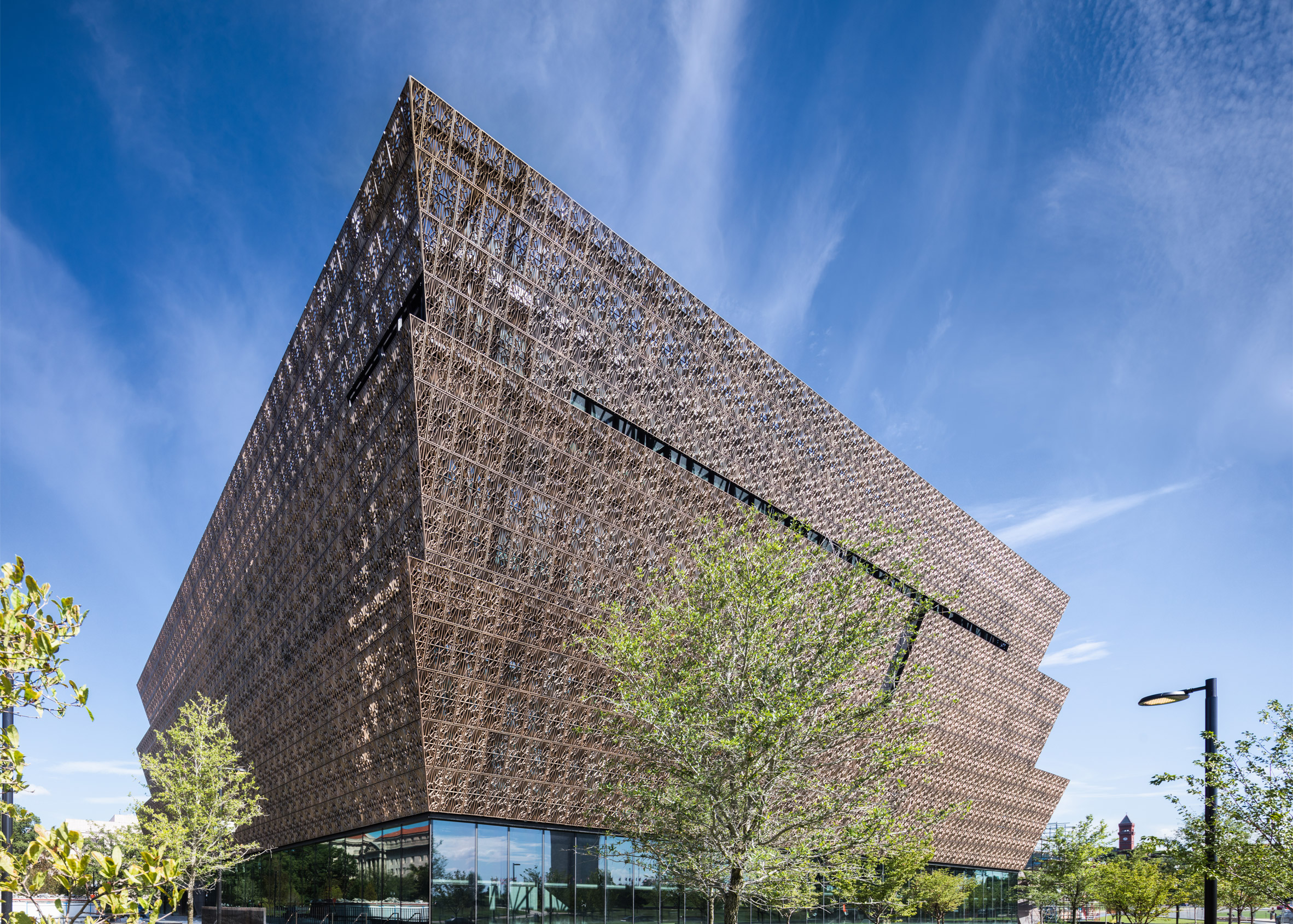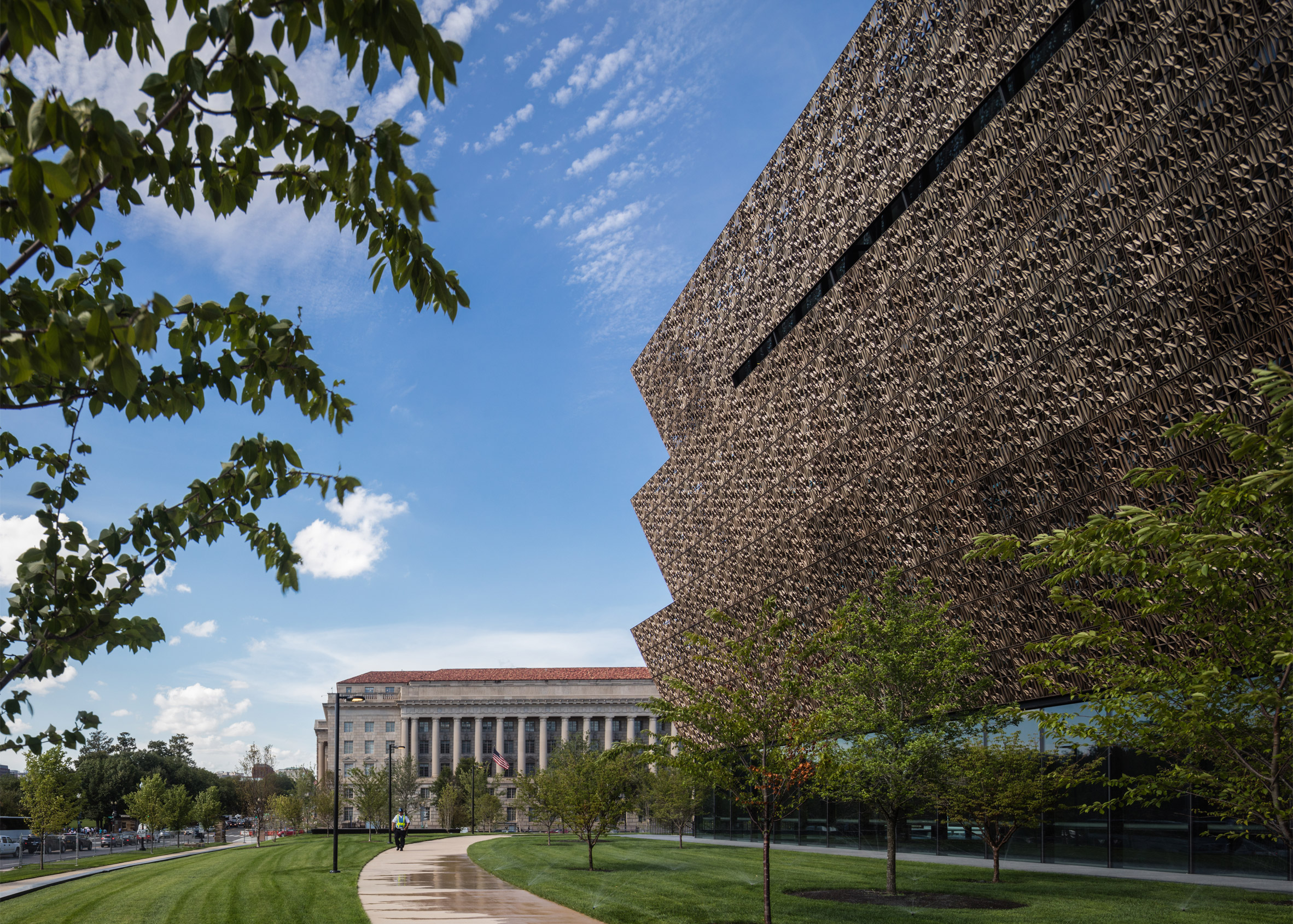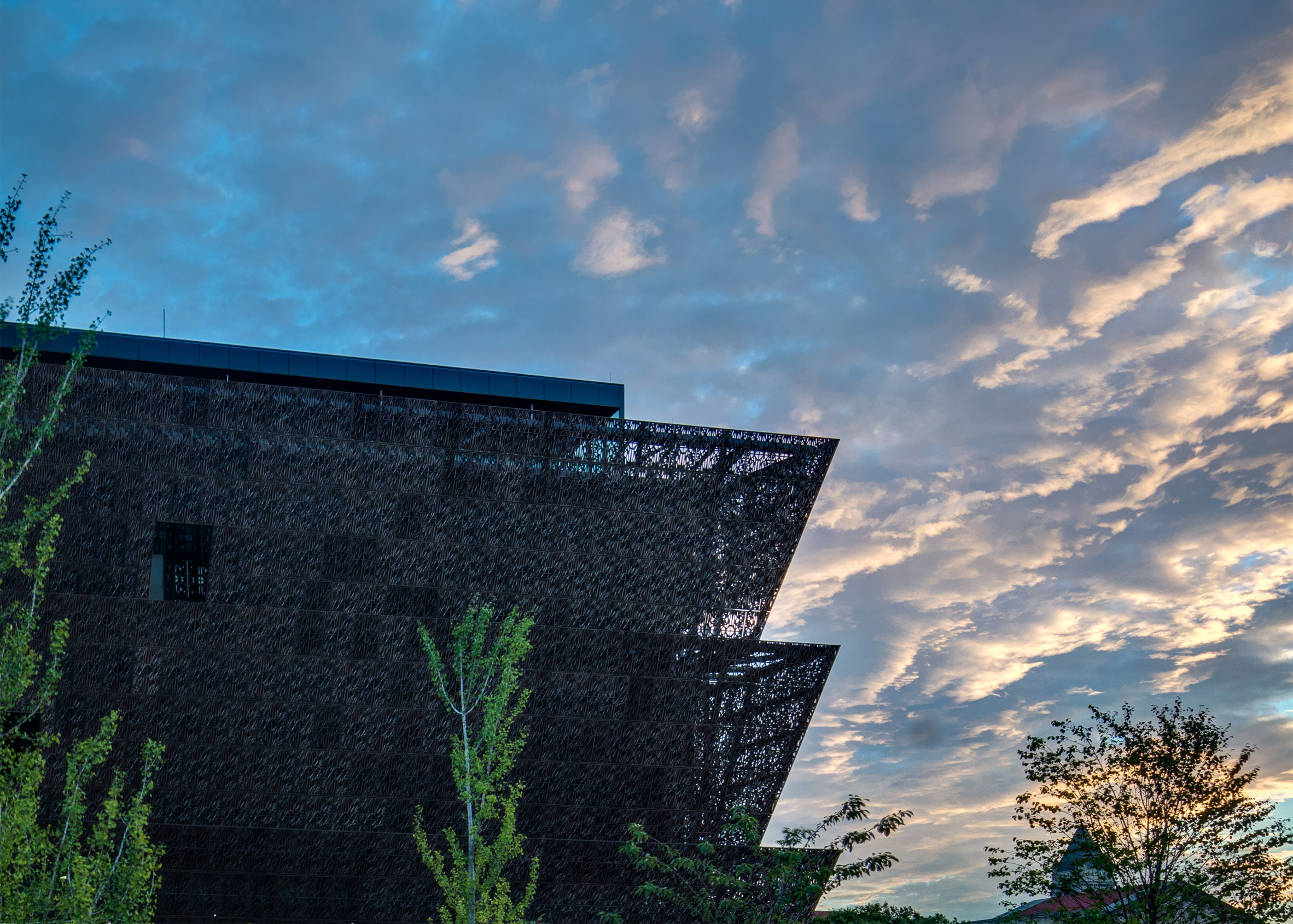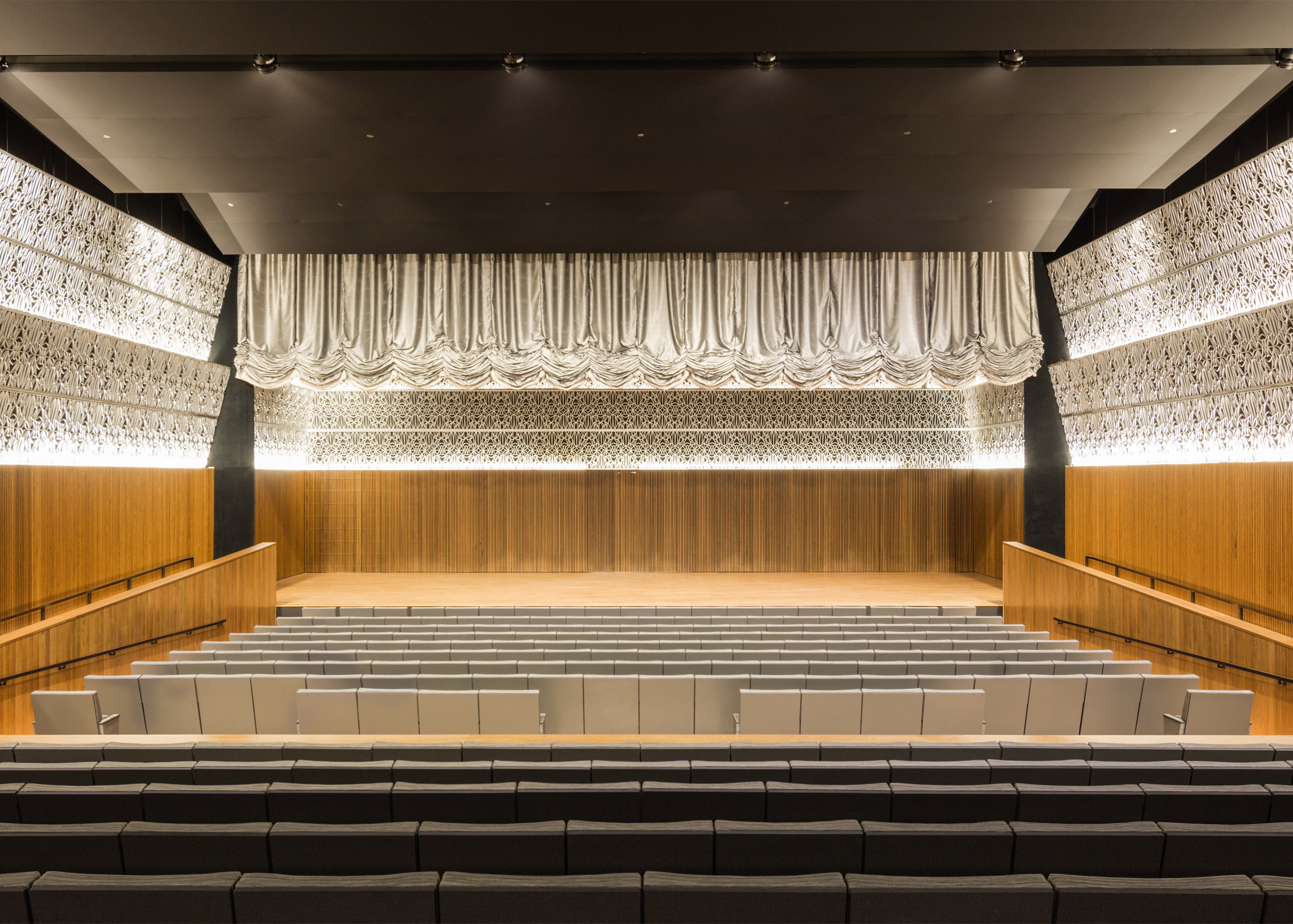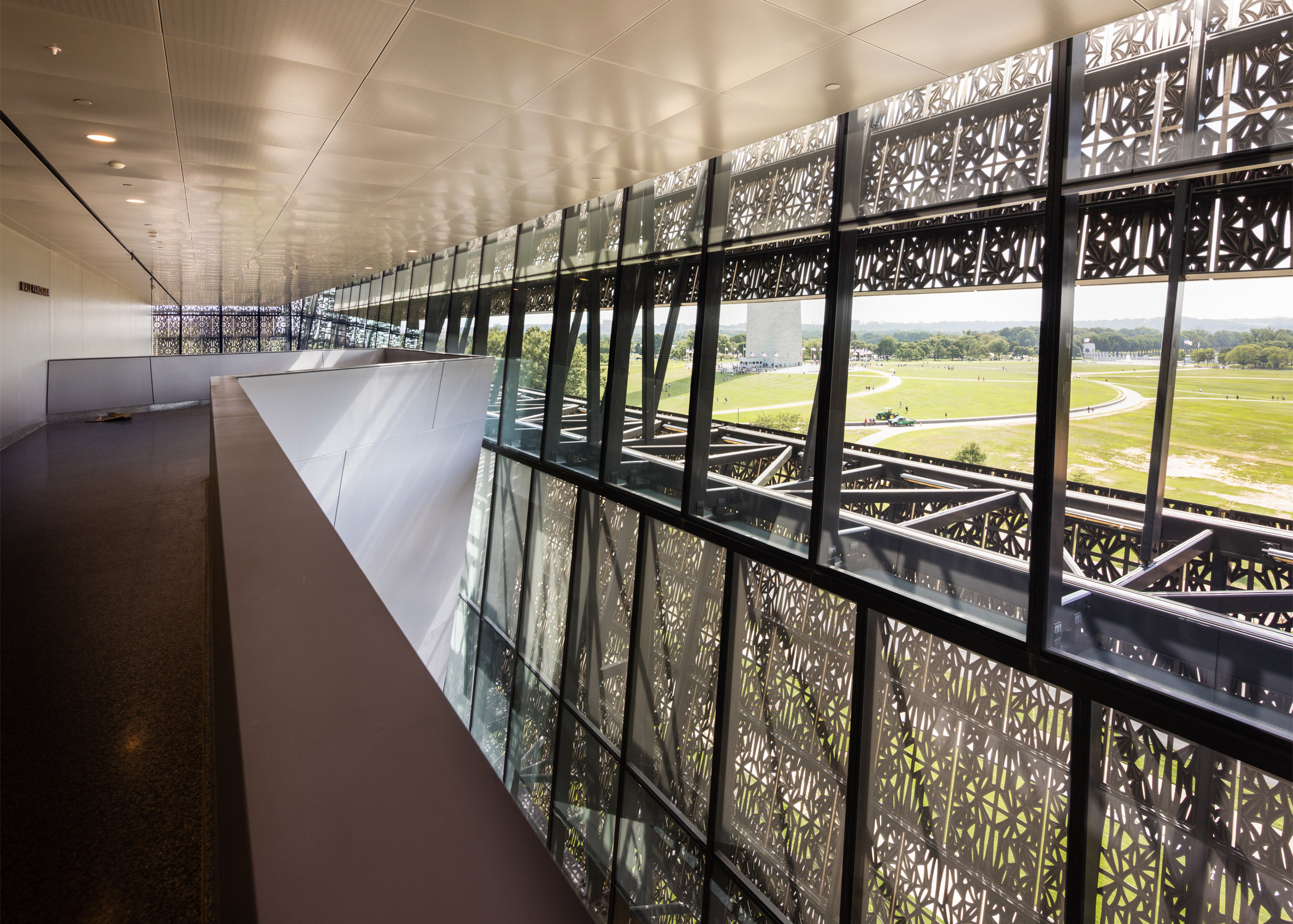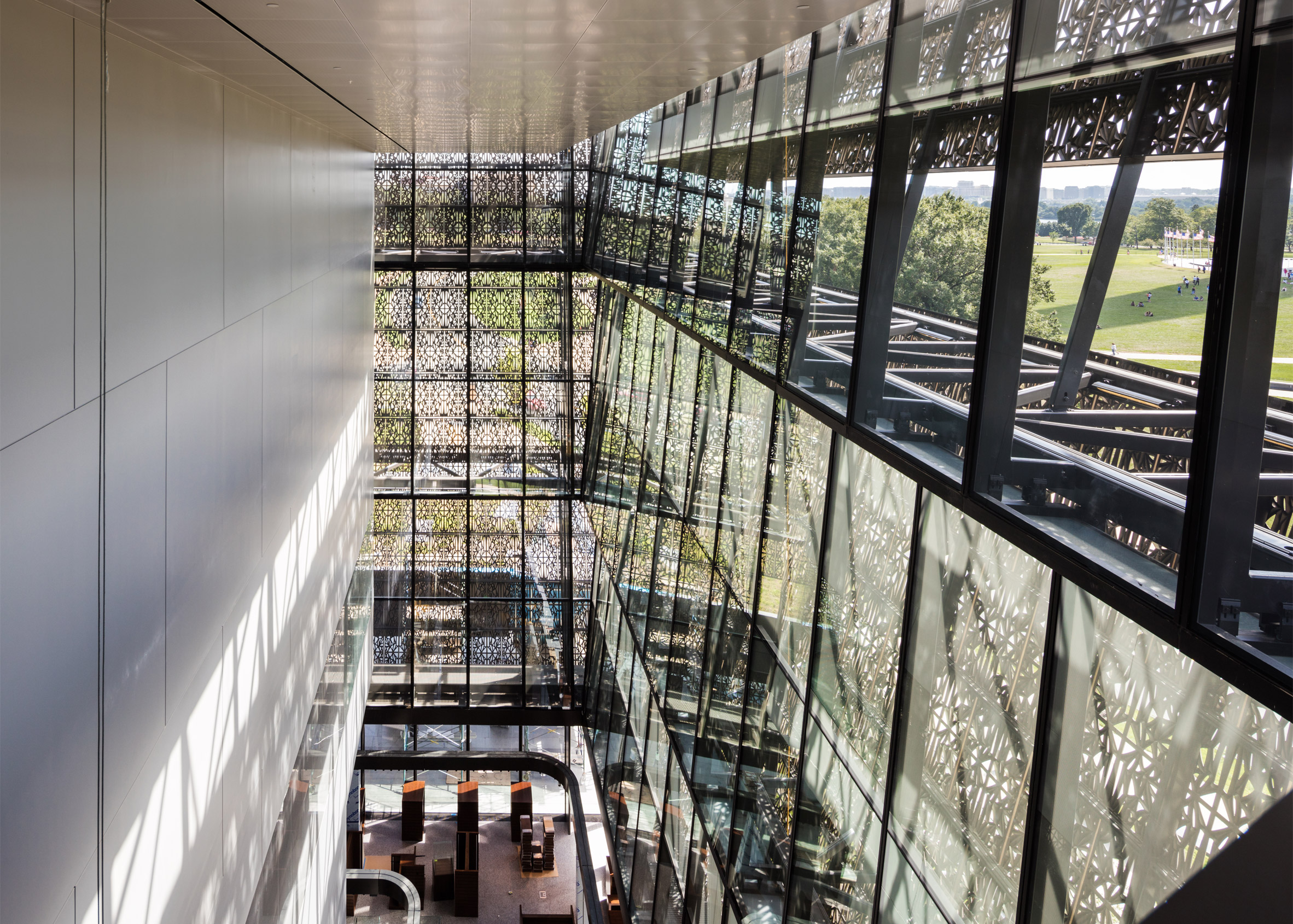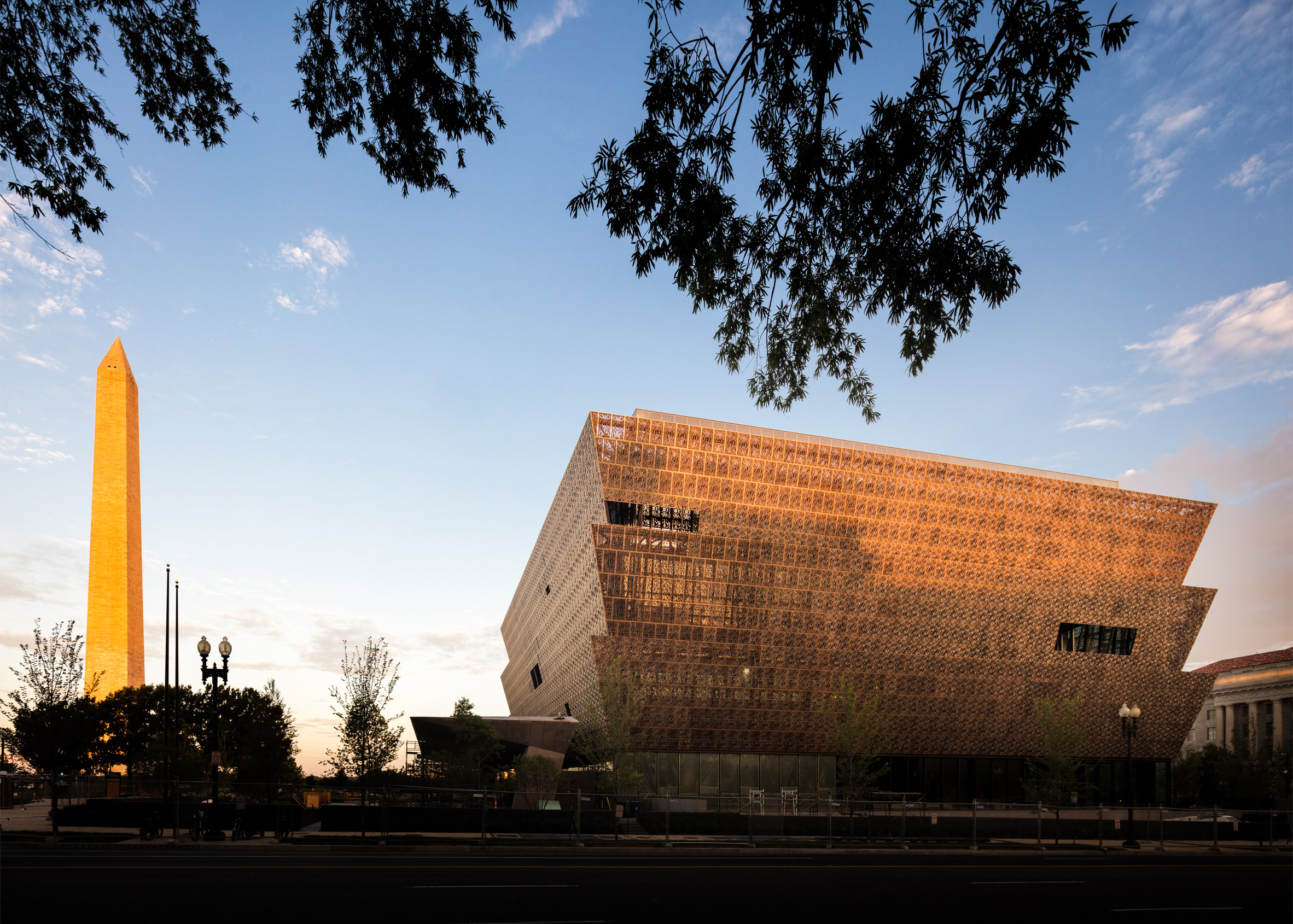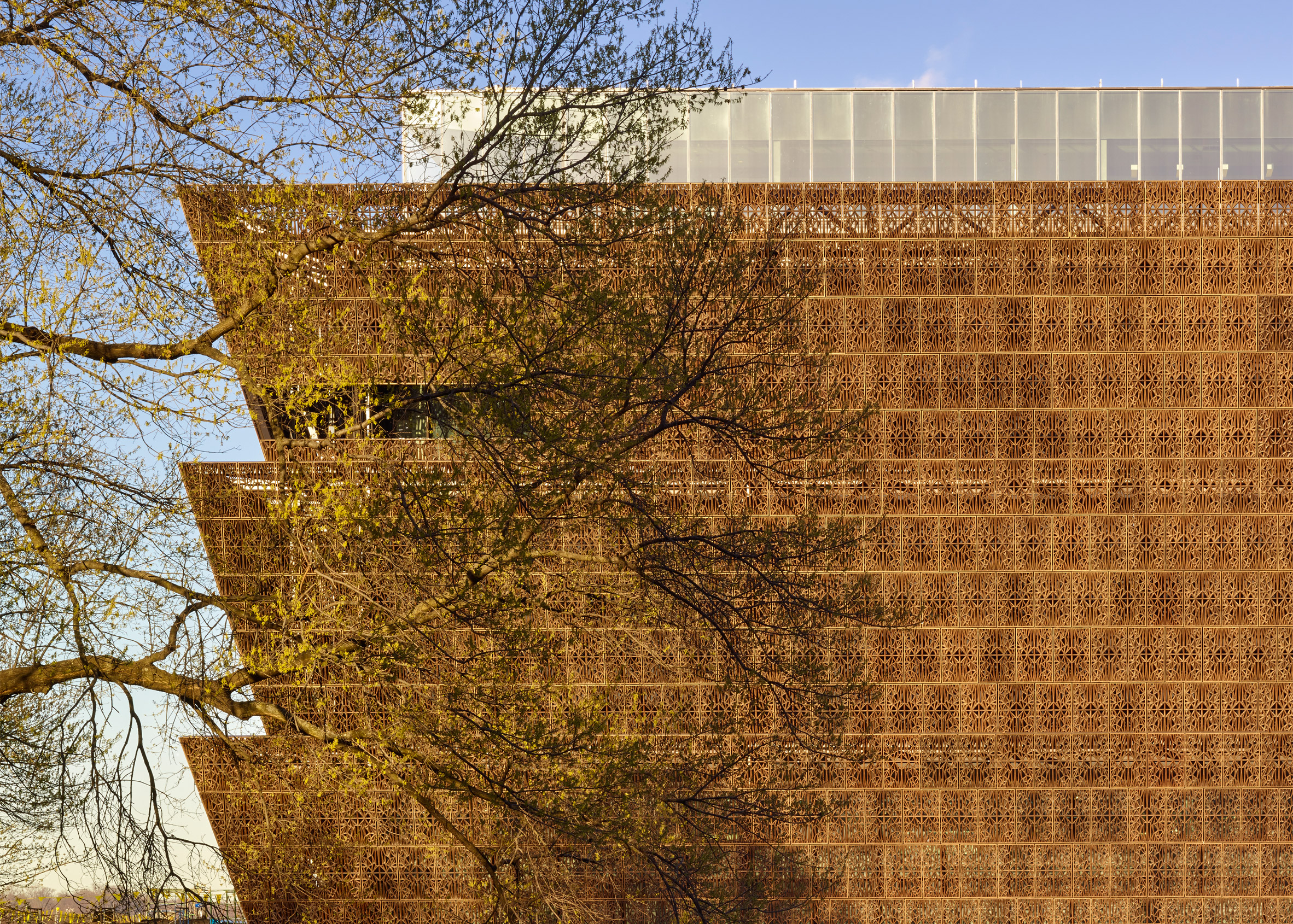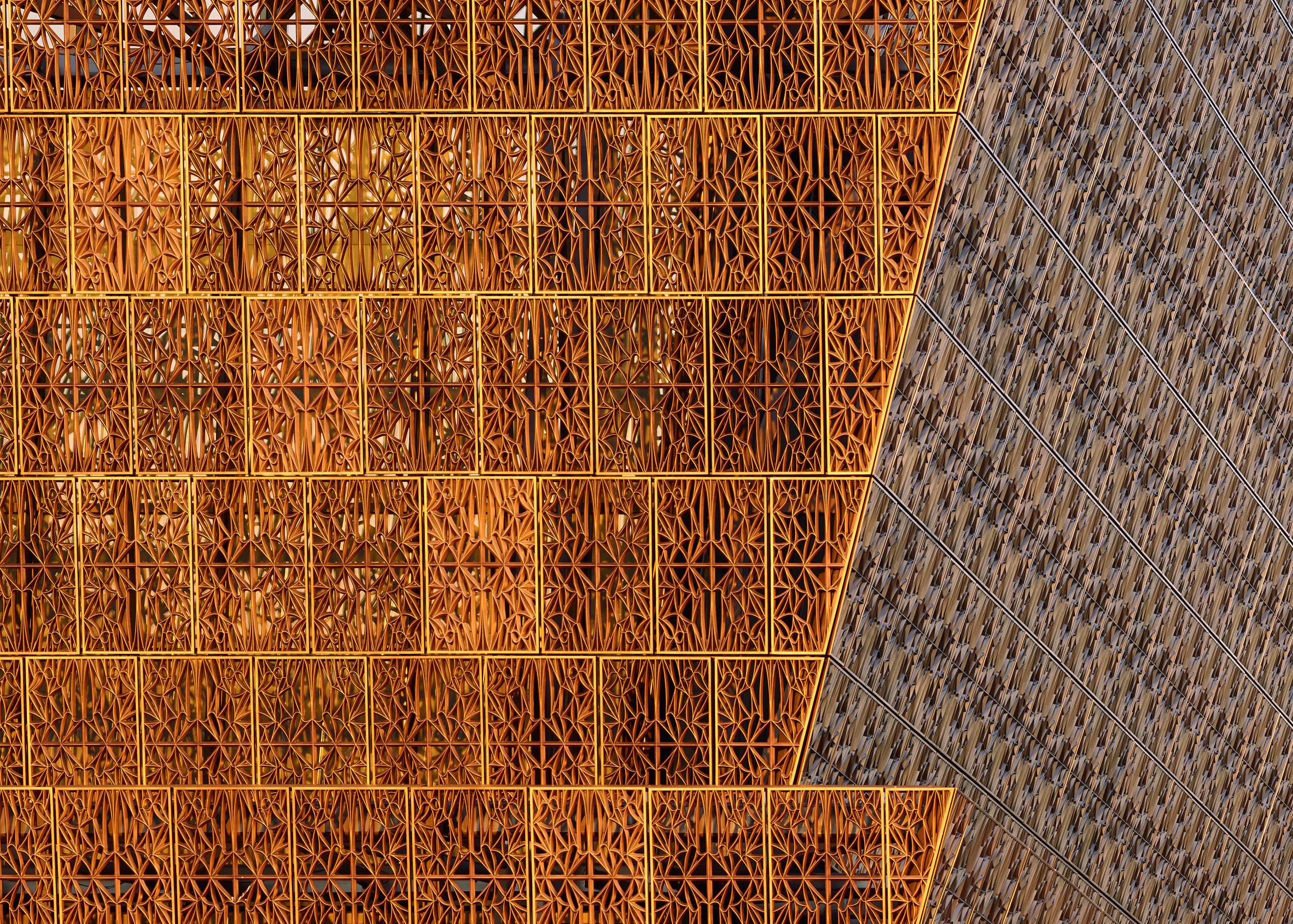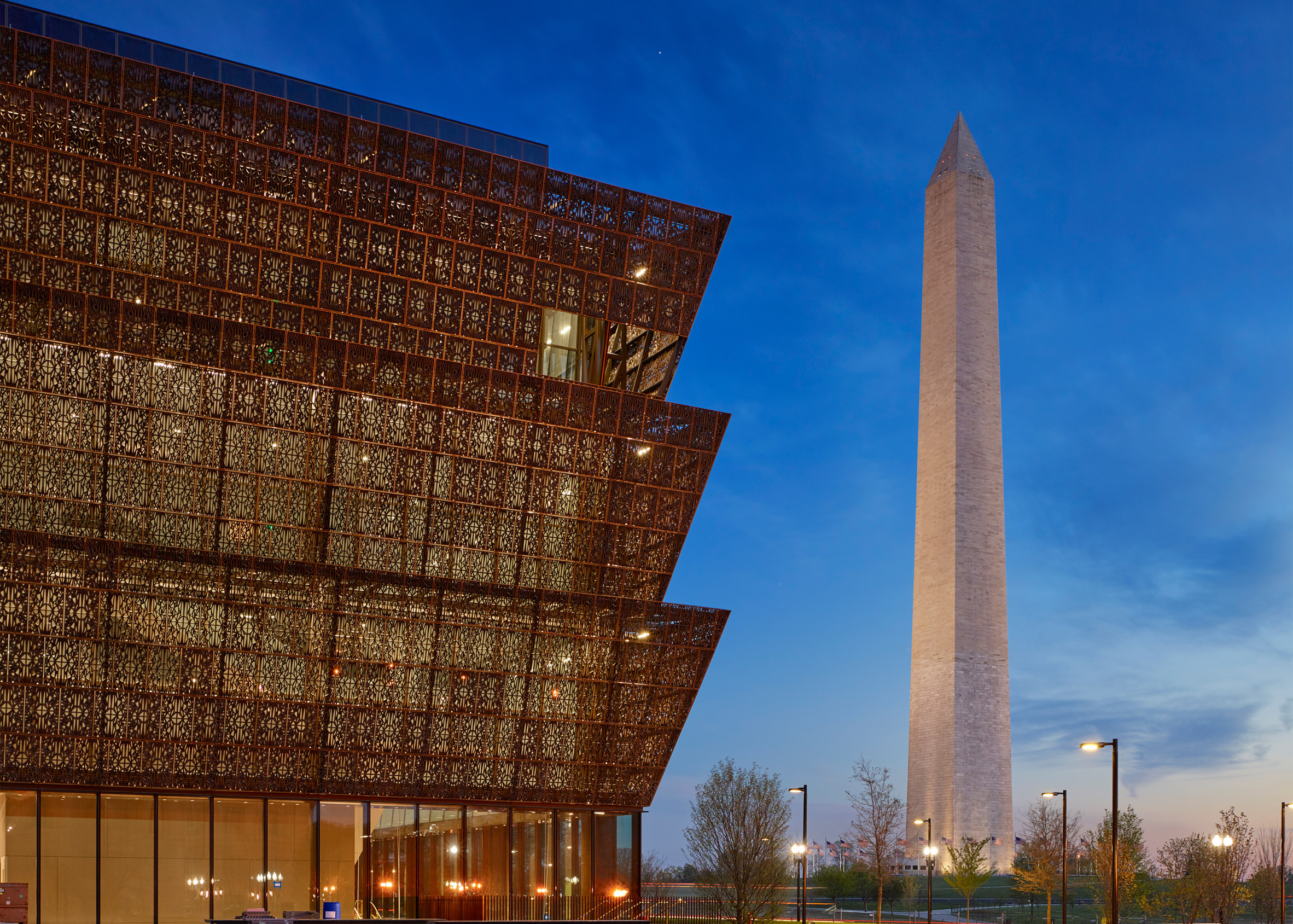Work has completed on the Smithsonian National Museum of African American History and Culture by British architect David Adjaye, which is poised to open next month (+ slideshow).
Adjaye Associates worked with US firms Davis Brody Bond, The Freelon Group and SmithGroupJJR on the design and execution of the institution, which is one of the most significant new museums in Washington DC.
The 313,000-square-foot (29,000-square-metre) building – captured by Instagram users in the run-up to completion – comprises a three-tiered structure covered in bronze plates.
Designed to shade the glazed facades behind, the filigree cladding is patterned to reference the history of African American craftsmanship.
The glass is left unobstructed around the base of the building. Portions of the bronze skin are also cut out near the top to provides views out across the US capital.
The south entrance is located beneath a porch that extends into the grounds of the nearby Washington Monument. A patio space sits on top, accessible from a mezzanine level inside.
More than half of its volume is situated below ground, where a triple-height history gallery and theatre space are located.
Further galleries, performance areas, administration offices and storage rooms for the NMAAHC's collections are all spread across the building.
The column-free interiors are designed to maximise natural light, and a material palette that includes pre-cast concrete, timber and glass.
Adjaye and the team of architects, known collectively as FAB, won the competition for the museum in 2009.
"There were so many attacks on our design that it felt like a bloodbath at times," the architect said in an interview earlier this month. "But we ended up with a building that's got 90 per cent of what we wanted, which for architecture is pretty damn great."
His other projects in the US include the Sugar Hill housing complex in New York's Harlem, and a red-concrete art museum planned for San Antonio, Texas.
NMAAHC will open to the public on 24 September 2016, after a dedication ceremony in the morning.
Photography is by Darren Bradley, unless indicated otherwise.

